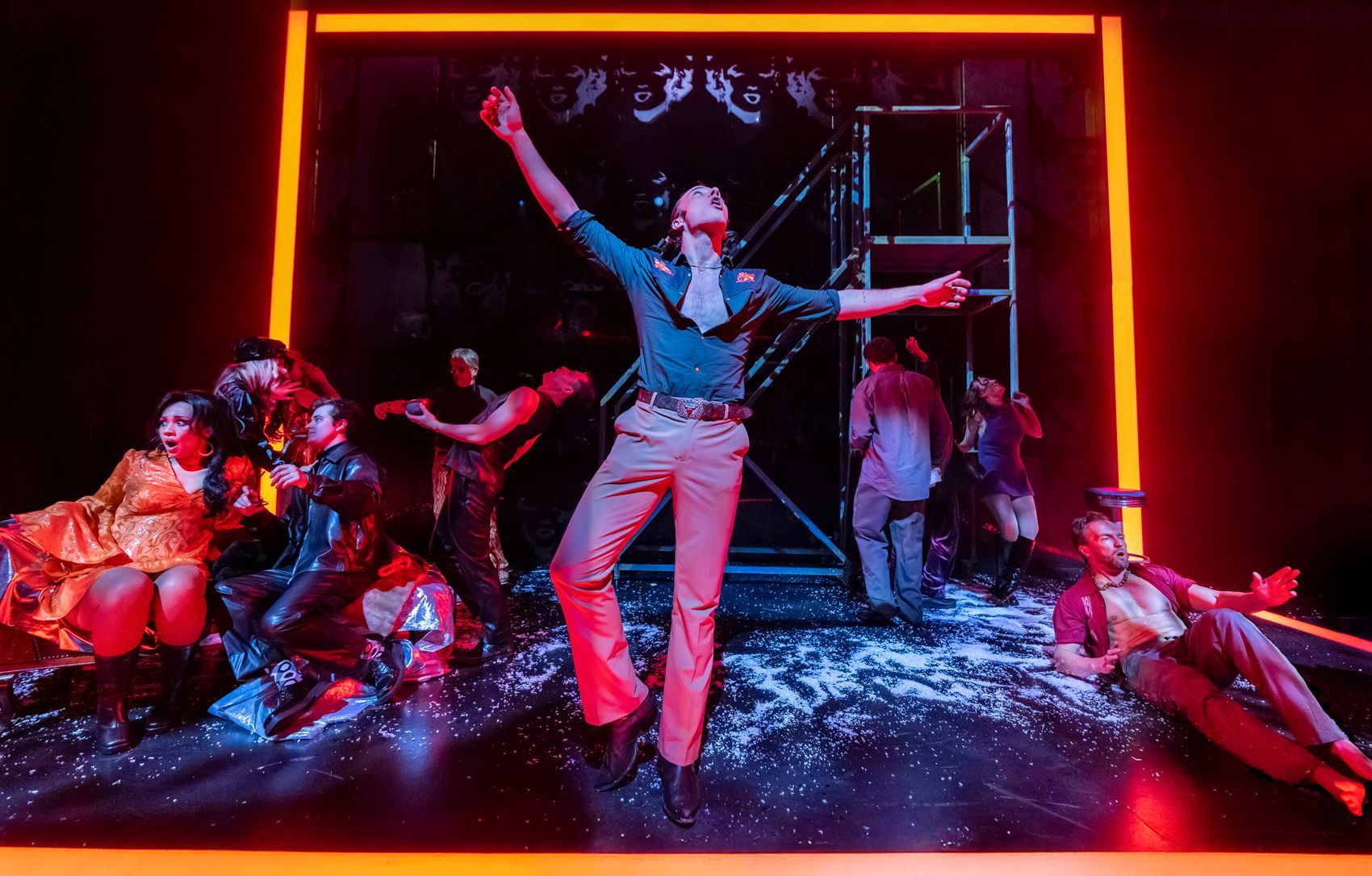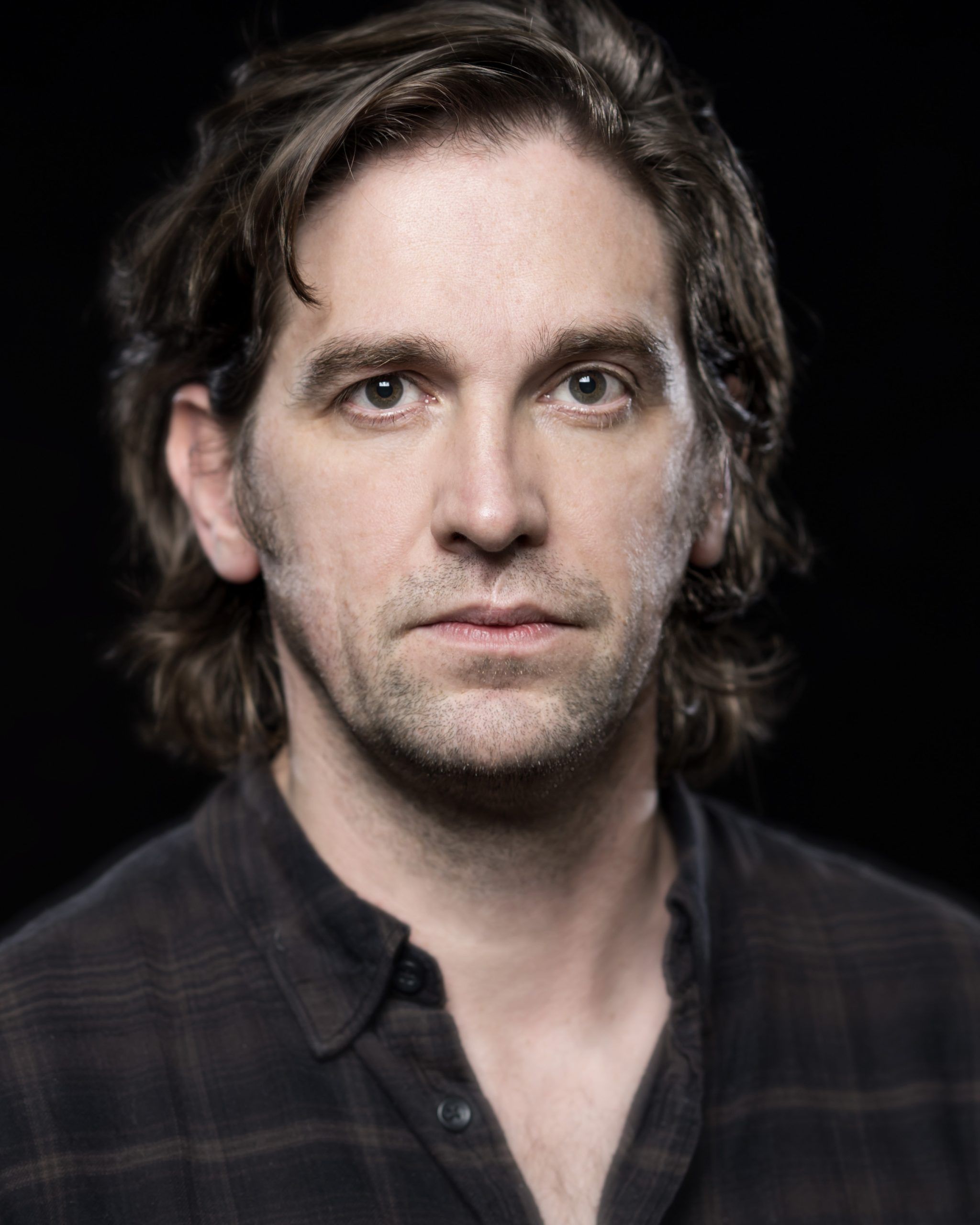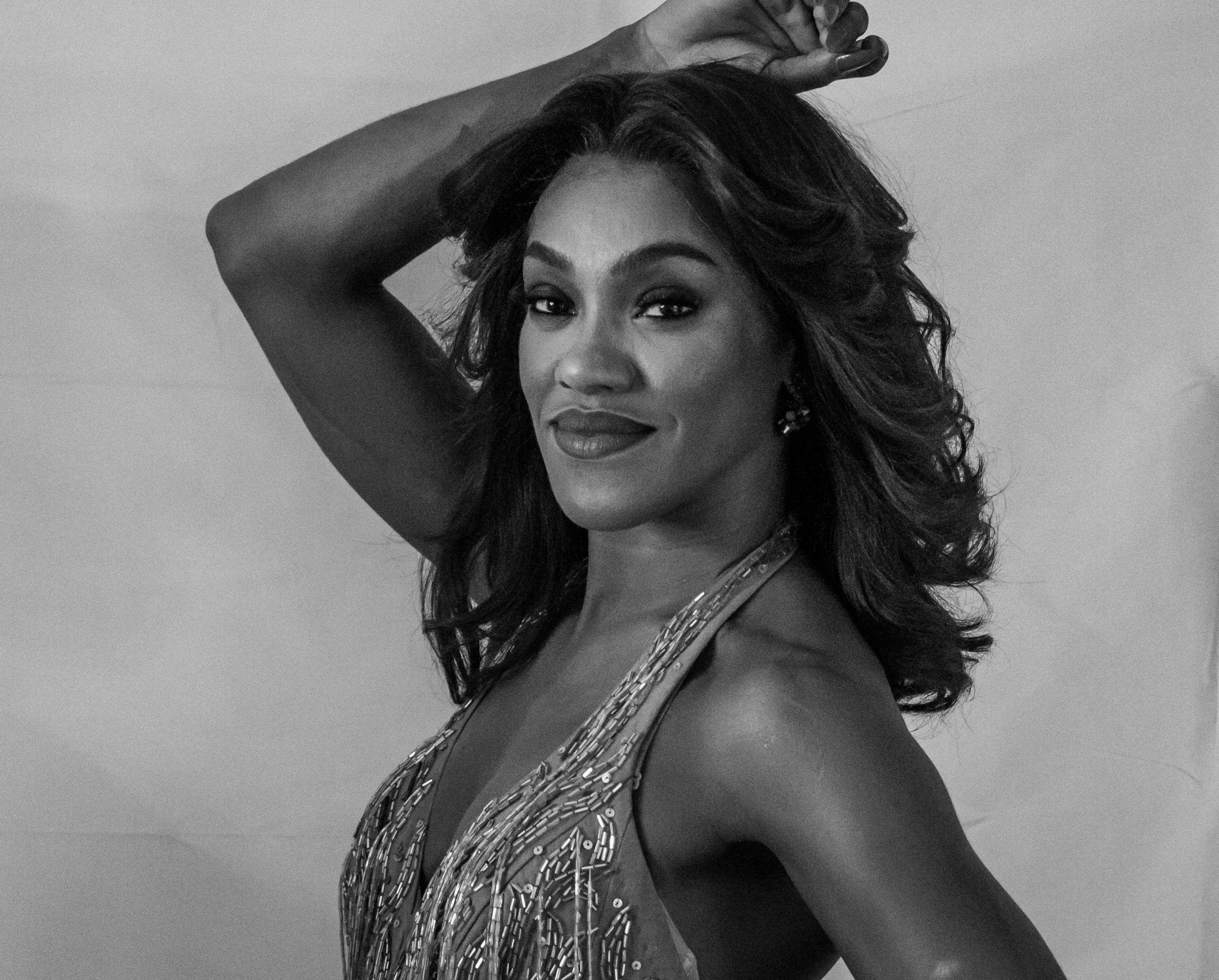Bringing Midnight Cowboy to the stage as a musical is a bold move. Based on both James Leo Herlihy’s novel and the iconic 1969 film, this new adaptation, with a book by Bryony Lavery and music and lyrics by Francis ‘Eg’ White, explores themes of loneliness, desperation, survival, and unlikely friendship in the underbelly of New York City. It’s an ambitious show — both in scale and source material — and while not everything lands, there’s still plenty to admire.
The story follows Joe Buck (Paul Jacob French), a young Texan who leaves behind a fragmented, difficult past in pursuit of a dream: to make his fortune in New York as a gigolo. The opening montage attempts to stitch together moments from Joe’s past, showing what’s driven him to leave Texas. Unfortunately, much of the detail was lost due to distorted sound on the night I went, making it hard to connect with him from the start.
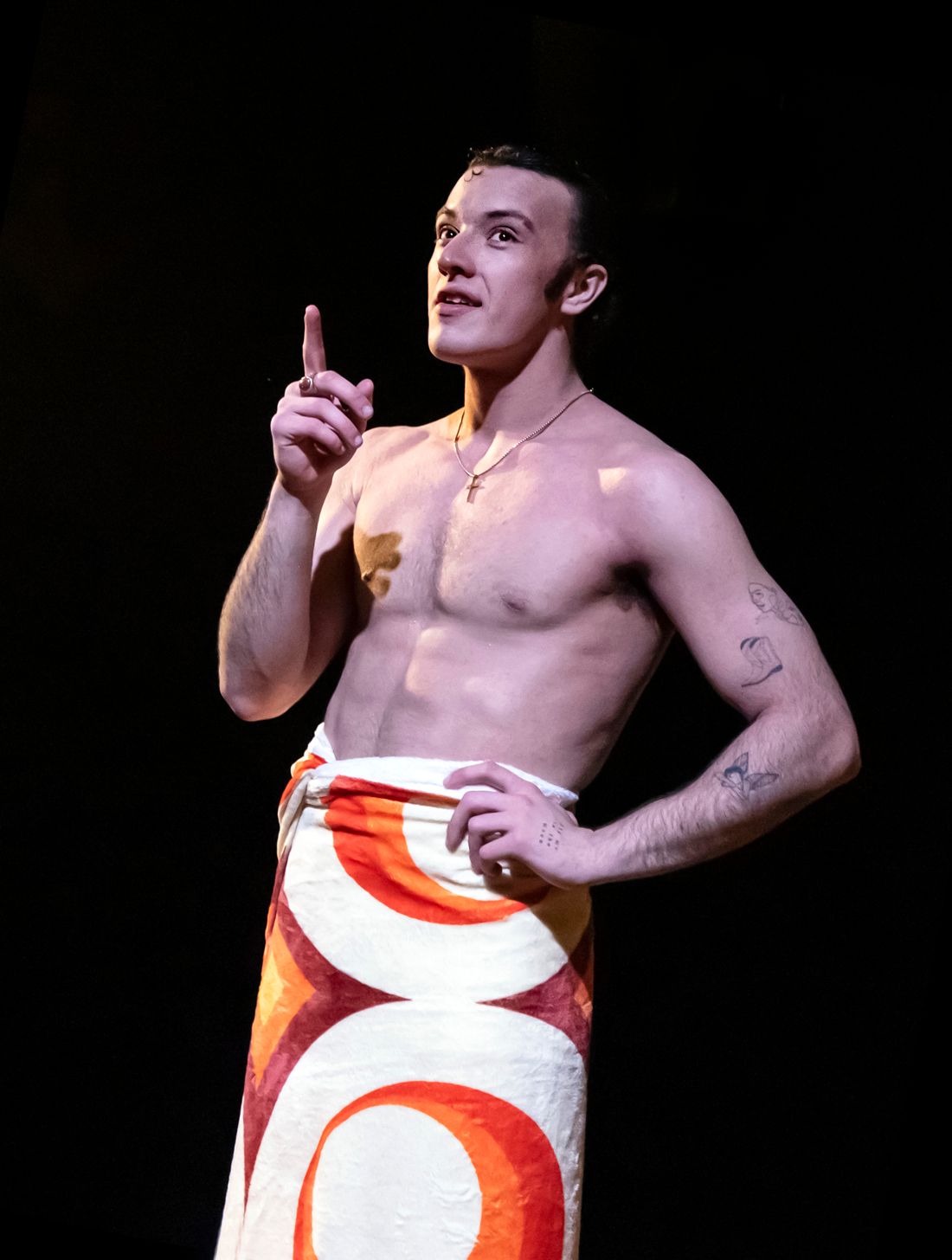
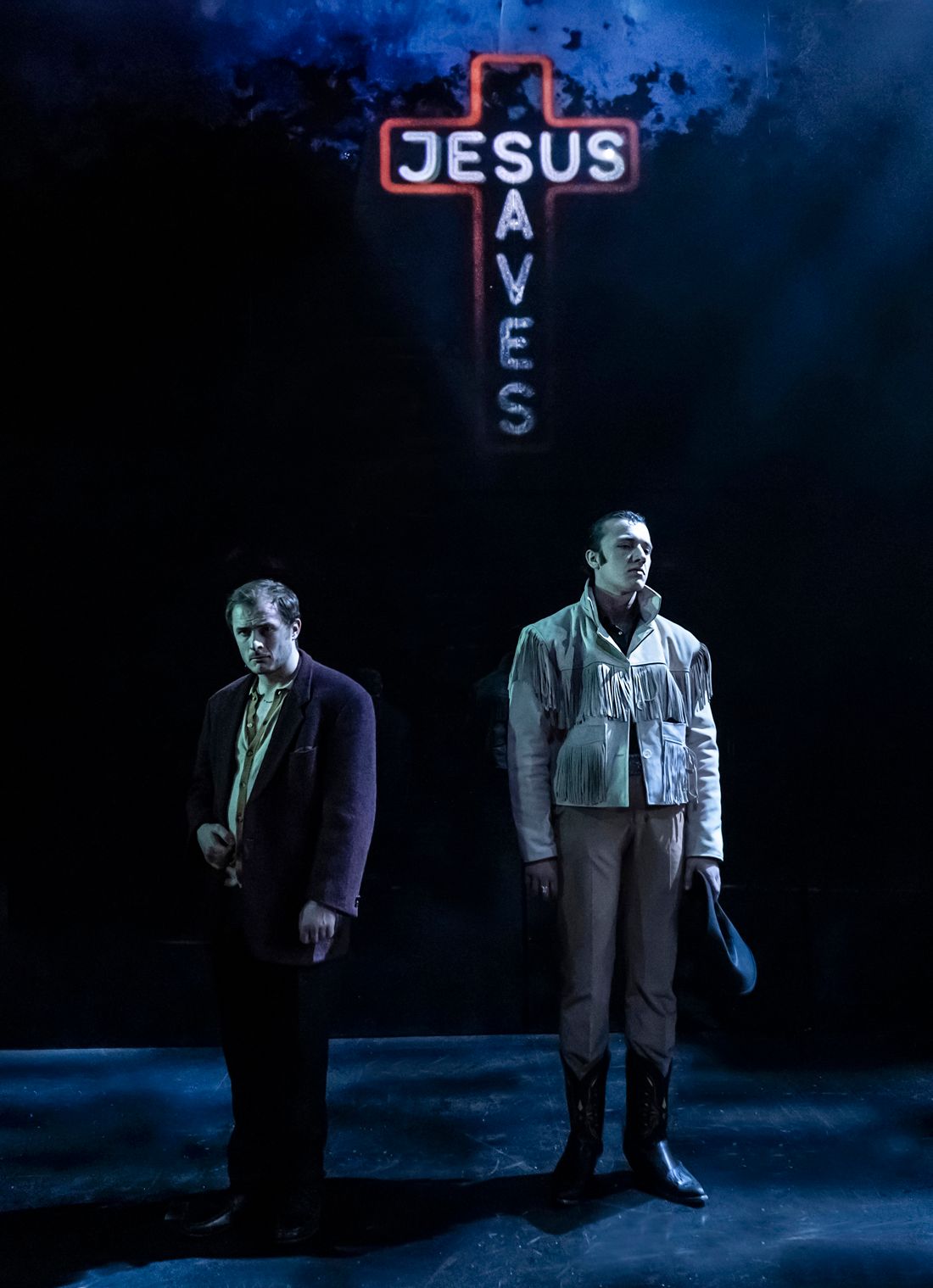
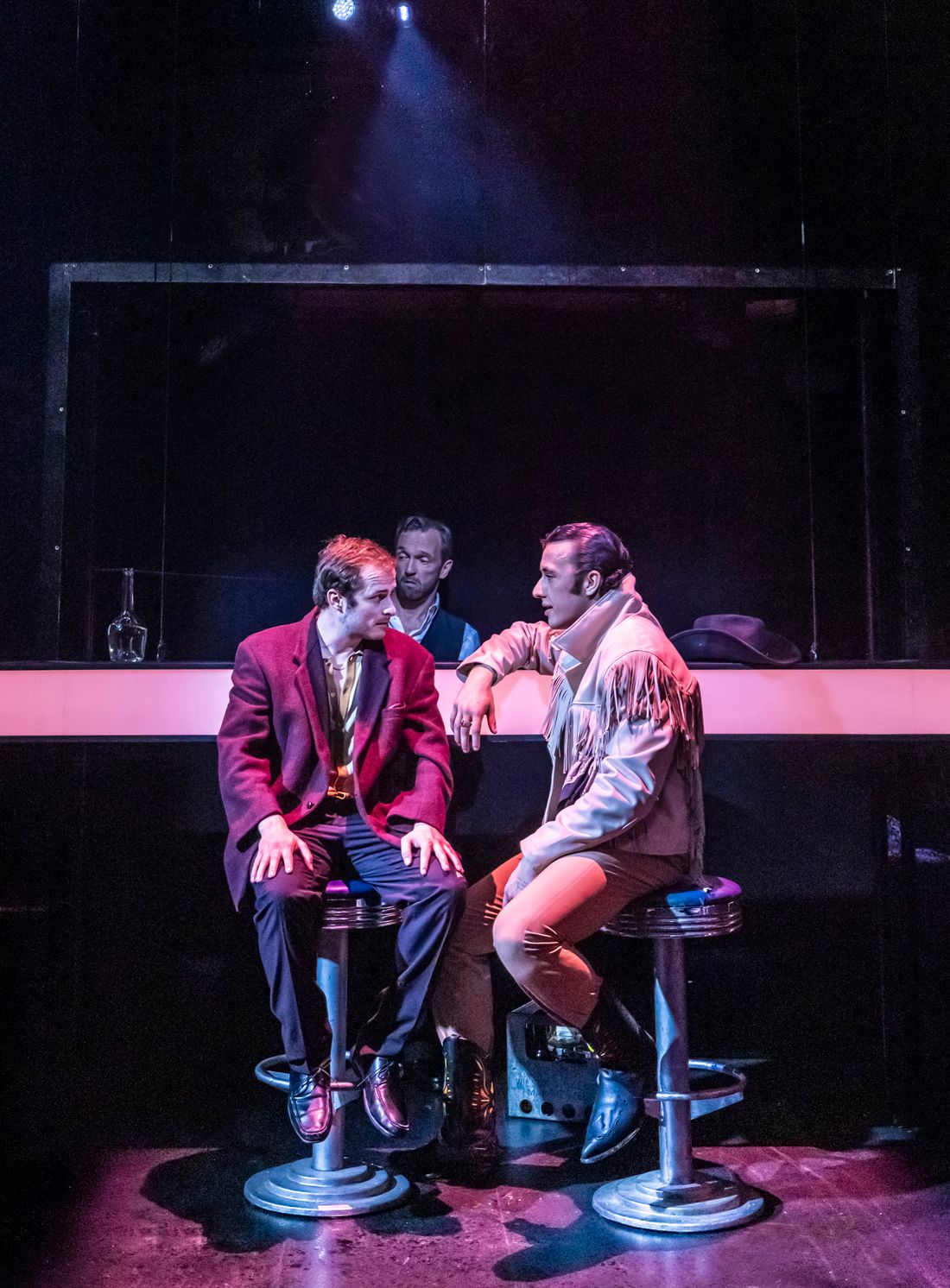
Joe’s dream of being paid for sex quickly unravels. His first “client,” Cass (played brilliantly by Tori Allen-Martin), turns out to be a sex worker herself, and he ends up giving her money. Allen-Martin’s number, Whatever It Is That You’re Doing, was a highlight — funny, sharply delivered, and vocally strong. Joe’s misadventures continue: he’s scammed by a street hustler, Ratso (Max Bowden), and duped into a meeting with Mr O’Daniel (Rohan Tickell), a religious zealot with a hidden sexual agenda. Rohan Tickell delivered a powerful rendition of Every Inch of This Earth Is a Church, making the most of a disturbing and dark moment.
By the end of Act 1, Joe is broke, homeless, and alone — until he reconnects with Ratso. Their tentative alliance forms the emotional core of the show. The act closes on Don’t Give Up on Me Now, sung by Ratso — a great number, powerfully performed by Bowden, and the point where the show begins to find its heart.
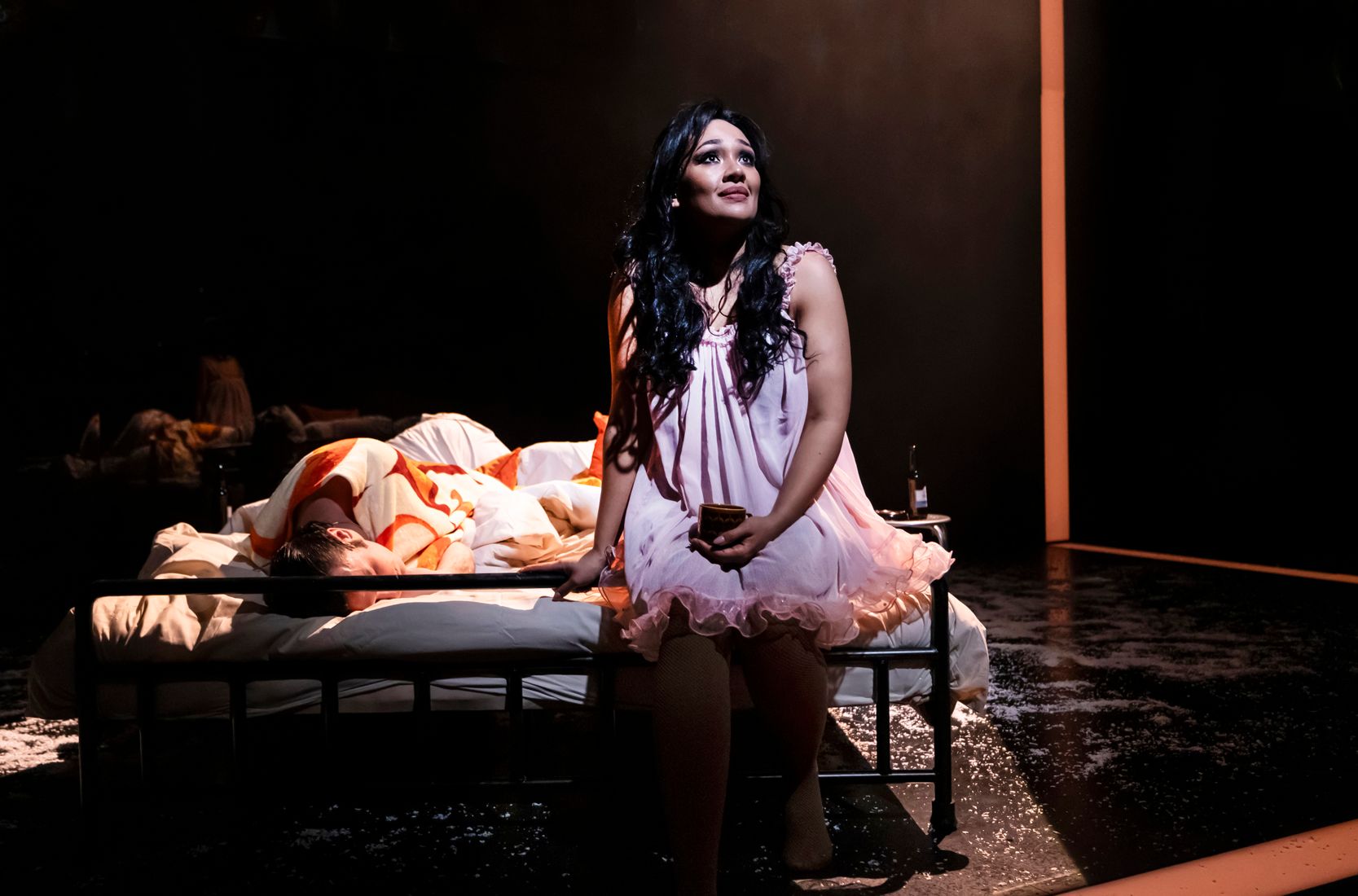
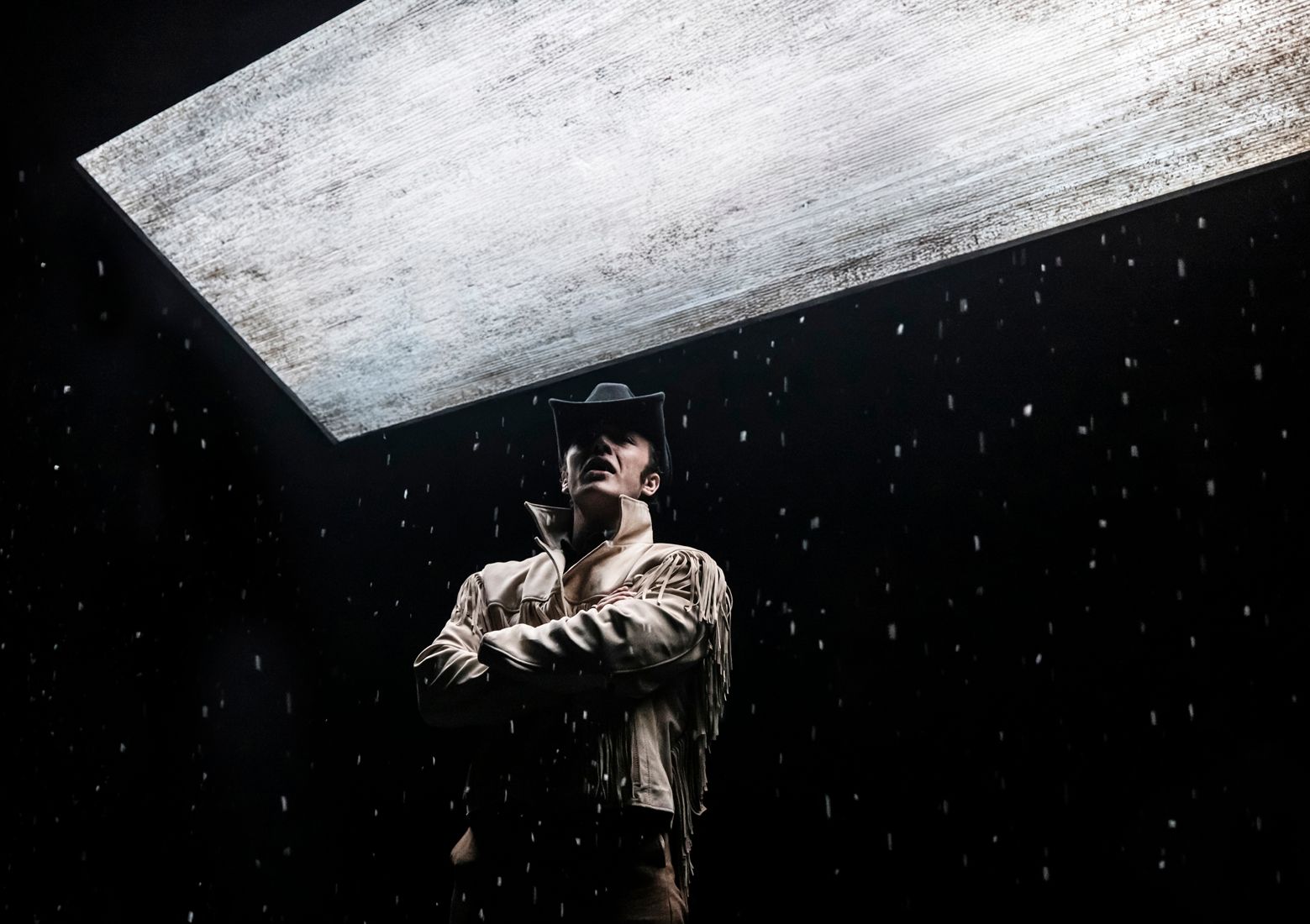
Act 2 shifts focus to the deepening bond between Joe and Ratso. They’re living in squalor, with Ratso’s health deteriorating. A turning point comes when a talent scout invites Joe to a Warhol-esque party. The sequence includes some awkward audience participation that didn’t quite land, but it does provide a moment of chaos and introspection for Joe as he spirals through drug-fuelled memories and hallucinations. There, he meets Orange (also played by Allen-Martin), who is excited to be paying for a gigolo for the first time. She’s charismatic and kind, and her solo Good Morning Joe is another musical standout.
The show builds to a final attempt by Joe to save Ratso — hustling one last time for the money to take them to Florida. The scene with Towny (Matthew White), an uptight man repressing his sexuality, is disturbing in places but necessary for the plot. White sang We’re Only Talking beautifully and gave one of the best-acted and best-written scenes of the evening.
Max Bowden’s Ratso is the emotional anchor of the production. Desperate, sick, but full of fight, he’s convincing and deeply human. Through him, the musical finds its most compelling story. Bowden shows us not just Ratso’s physical decline but the loneliness and grit that drive him. It’s a portrayal that reminds us how little has changed for some of society’s most marginalised.
Tori Allen-Martin lights up the stage in every role she takes on — funny, great comic timing, fierce, and with a stunning voice. Her performances as Cass, Orange, and Juanita show her range and star quality. Matthew White and Rohan Tickell both shine in limited stage time, adding complexity to characters navigating repression, shame, and desire.
Unfortunately, Joe Buck himself doesn’t come across as fully realised. Paul Jacob French’s Texan drawl often obscured his diction, and his vocal delivery — a rasping, unnatural style — made it hard to connect emotionally. I found myself seeing more of Kenickie’s swagger (a role he’s played before) than Joe Buck’s naïve charm and sex appeal.
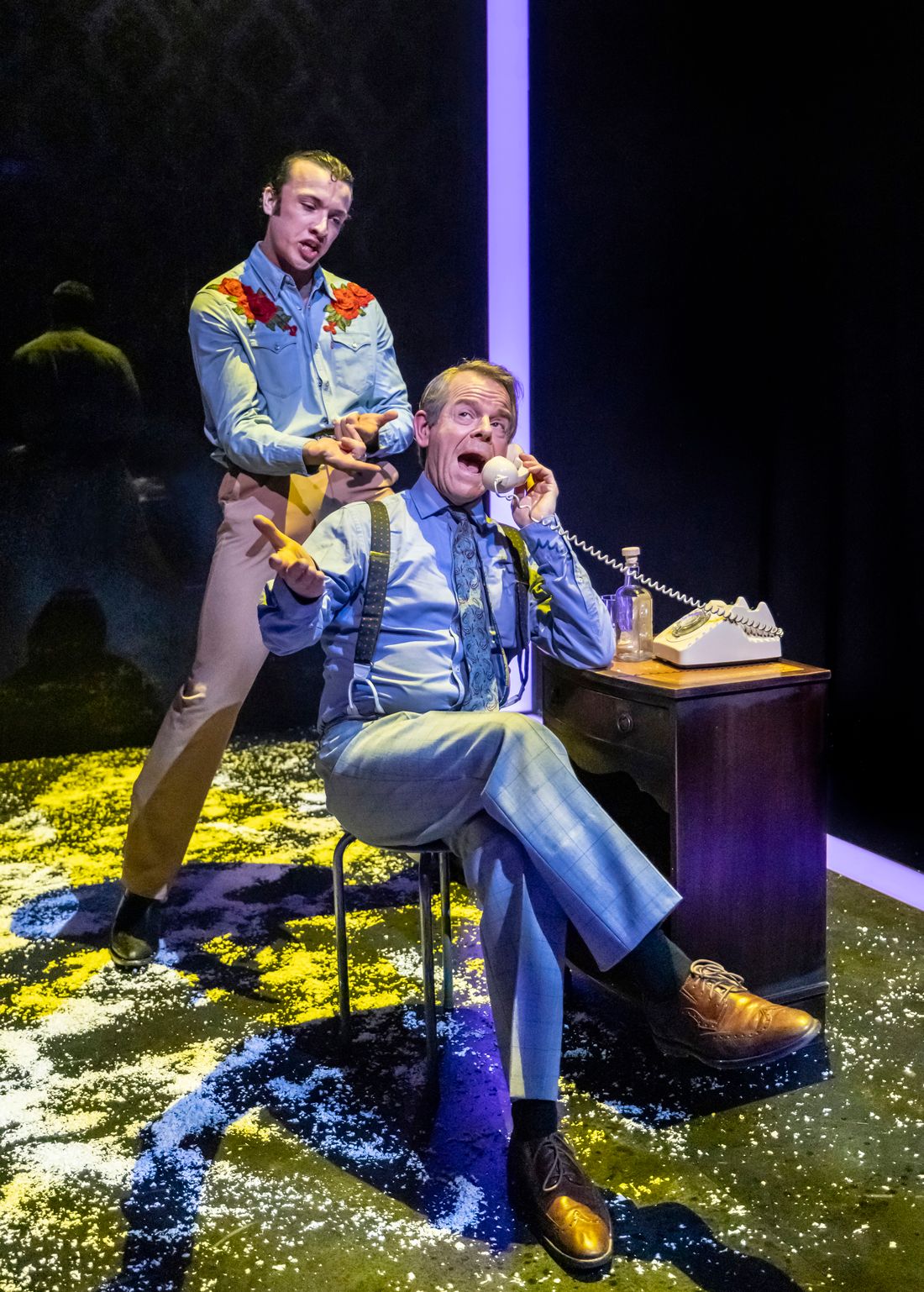
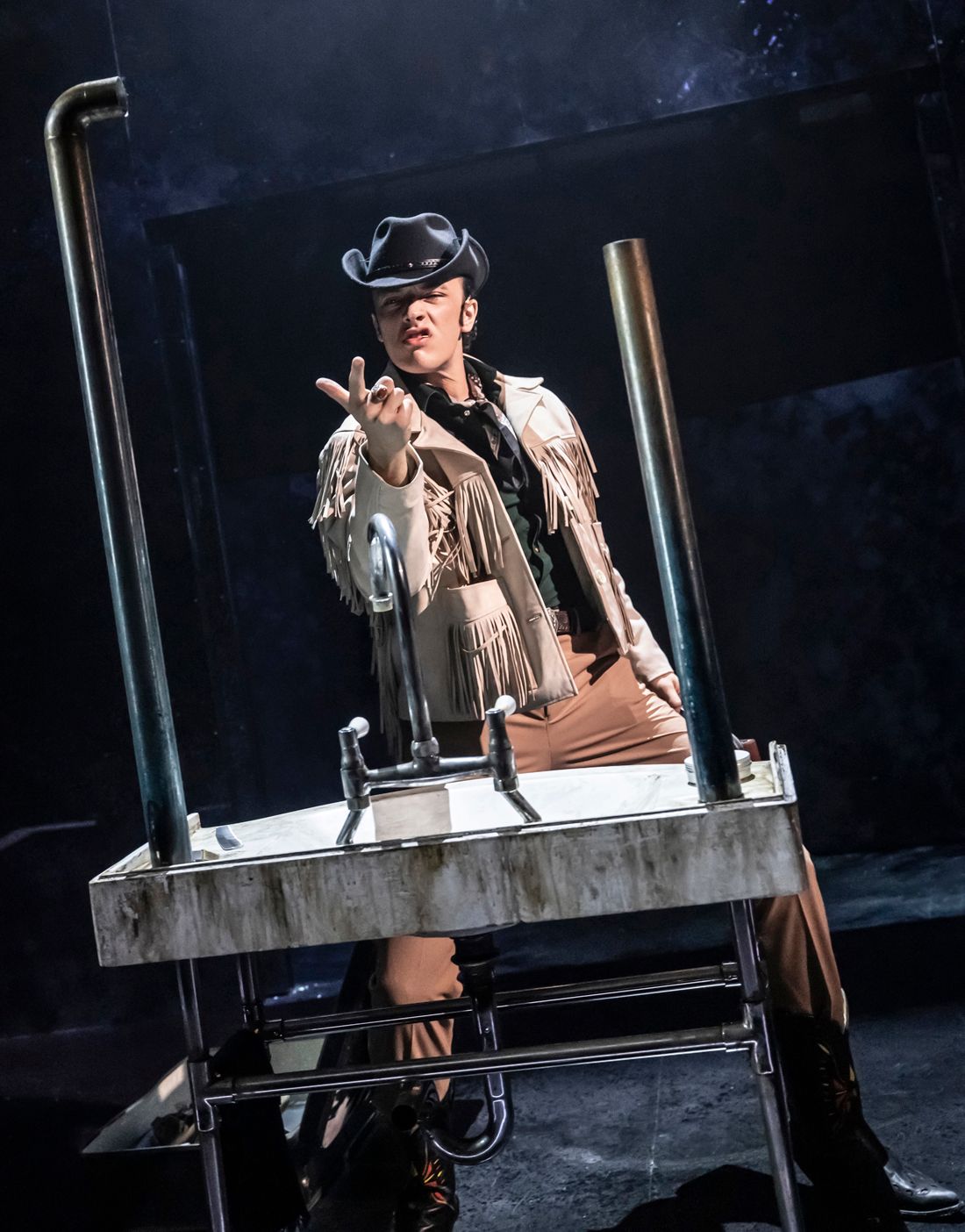
There were other issues too: the choreography felt uneven and under-rehearsed, with the ensemble lacking synchronicity in places. The show would have benefited greatly from another week or two of development and tightening up — particularly in the pacing of Act 1, which occasionally felt choppy. But even as it stands, it’s a show with ambition and heart.
The set was cleverly designed — the opening scene with the dripping tap and dirty sink instantly evoked a sense of decay. The lighting and use of a dirty mirrored backdrop, which revealed hidden spaces and memories, worked effectively. The band of four sounded great, and I appreciated the soulful, bluesy sound — at times reminiscent of Duffy or Adele. One missed opportunity: the partial tease of Everybody’s Talkin’ at the start felt like a setup for a full reprise that never came.
Despite its flaws, I really enjoyed Midnight Cowboy. It stayed true to the tone of both the book and the film, and Ratso’s story — more than Joe’s — gave the show its emotional weight. Critics may have been harsh, but I found much to like here. With a bit more time and attention, this ambitious production could really shine. For now, it’s a rough gem — but one that’s still worth watching.
Midnight Cowboy is on at Southwark Playhouse until 17 May to book tickets visit www.midnightcowboymusical.com.
Words by Helen Keegan
Photography Pamela Raith

